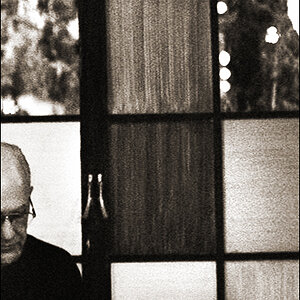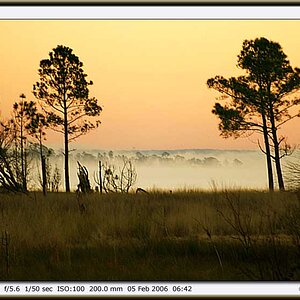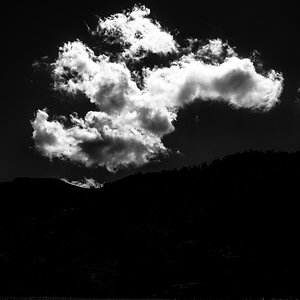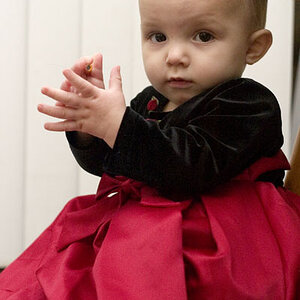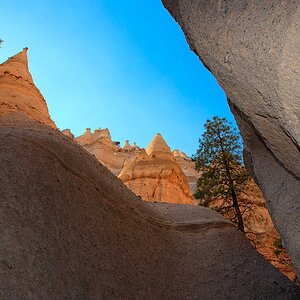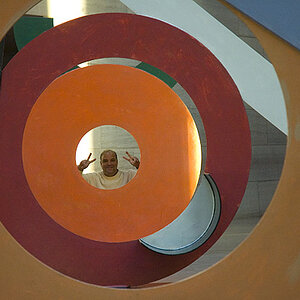Navigation
Install the app
How to install the app on iOS
Follow along with the video below to see how to install our site as a web app on your home screen.

Note: This feature currently requires accessing the site using the built-in Safari browser.
More options
You are using an out of date browser. It may not display this or other websites correctly.
You should upgrade or use an alternative browser.
You should upgrade or use an alternative browser.
Well, it happened to me; Bugged by security.
- Thread starter RMThompson
- Start date
abraxas
No longer a newbie, moving up!
- Joined
- Aug 15, 2006
- Messages
- 10,417
- Reaction score
- 9
- Can others edit my Photos
- Photos NOT OK to edit
Ok, that was fun.
The mall manager told me that as long as I didn't show either customers, or tenants that I could do as I pleased, just shooting the model. However, I would be escorted by a security guard during what I plan to be an approximately two hour visit/session. No problem. They asked for a time frame (about 3 weeks) and a couple days advance notice so they could arrange the schedule for the escort.
Heck, that was easy. Might even do it. The nice girl/manager sounded kind of hot. Wouldn't mind checking that out up close.
The mall manager told me that as long as I didn't show either customers, or tenants that I could do as I pleased, just shooting the model. However, I would be escorted by a security guard during what I plan to be an approximately two hour visit/session. No problem. They asked for a time frame (about 3 weeks) and a couple days advance notice so they could arrange the schedule for the escort.
Heck, that was easy. Might even do it. The nice girl/manager sounded kind of hot. Wouldn't mind checking that out up close.
lostprophet
No longer a newbie, moving up!
- Joined
- Feb 10, 2006
- Messages
- 11,792
- Reaction score
- 181
- Can others edit my Photos
- Photos NOT OK to edit
just do what I do and wear one of these
http://www.cafepress.com/buy/photog...9676/pNo_36969676/id_9444127/opt_/pg_/c_/fpt_

http://www.cafepress.com/buy/photog...9676/pNo_36969676/id_9444127/opt_/pg_/c_/fpt_
Village Idiot
No longer a newbie, moving up!
- Joined
- Mar 20, 2008
- Messages
- 7,269
- Reaction score
- 406
- Location
- Shepherdsturd, WV / Almost, MD
- Can others edit my Photos
- Photos NOT OK to edit
oh yeh... just remember..
Even though it is private property, they do not have the right to confescate equipment that is your property. This includes rolls of film.
Which many many "officials" and not so officials tend to try and overlook.
abraxas
No longer a newbie, moving up!
- Joined
- Aug 15, 2006
- Messages
- 10,417
- Reaction score
- 9
- Can others edit my Photos
- Photos NOT OK to edit
So my point is; What does it hurt to ask permission to use private property even though there is public access?
It's not hard to ask- you do have that right.
It's not hard to ask- you do have that right.
schumionbike
TPF Noob!
- Joined
- Mar 9, 2007
- Messages
- 1,083
- Reaction score
- 0
- Location
- Houston, Texas
- Can others edit my Photos
- Photos OK to edit
No, not confusing anything. The US Supreme Court defined public place in terms of access, which is no surprise since other countries have done the same thing in Europe and elsewhere.
Betamax decision: Disney versus Sony. You find the web site. I have a written version buried somewhere.
skieur
Can you tell me how you came to such conclusion or if there was a quote in the case I can look at? I read that case a while back and I don't see how you can come to that conclusion.
Can you tell me how you came to such conclusion or if there was a quote in the case I can look at? I read that case a while back and I don't see how you can come to that conclusion.
My guess is that he can't. Here is the brief from the case:
SONY CORPORATION OF AMERICA, et al., Petitioners, v. UNIVERSAL CITY
STUDIOS, INC. and WALT DISNEY PRODUCTIONS, Respondents.
http://w2.eff.org/legal/cases/betamax/betamax_amicus_state.pdf
It has absolutely nothing to do with private property/public property/public access in regards to real property. It discusses at one point "public access" to television transmission over the public airwaves for public consumption. Not ever remotely related to the topic at hand.
Socrates
TPF Noob!
- Joined
- Jan 28, 2008
- Messages
- 1,183
- Reaction score
- 0
- Location
- Exit #5
- Can others edit my Photos
- Photos NOT OK to edit
My guess is that he can't. Here is the brief from the case:
SONY CORPORATION OF AMERICA, et al., Petitioners, v. UNIVERSAL CITY
STUDIOS, INC. and WALT DISNEY PRODUCTIONS, Respondents.
http://w2.eff.org/legal/cases/betamax/betamax_amicus_state.pdf
It has absolutely nothing to do with private property/public property/public access in regards to real property. It discusses at one point "public access" to television transmission over the public airwaves for public consumption. Not ever remotely related to the topic at hand.
I came to the same conclusion here:
http://caselaw.lp.findlaw.com/scripts/getcase.pl?court=US&vol=464&invol=417
skieur
TPF Noob!
- Joined
- May 14, 2007
- Messages
- 5,071
- Reaction score
- 204
- Location
- Canada
- Can others edit my Photos
- Photos OK to edit
Help me out here. I'm completely unable to locate any reference to "the US Supreme Court defined public place in terms of access."
http://caselaw.lp.findlaw.com/scripts/getcase.pl?court=US&vol=464&invol=417
I haven't found a quick reference either but I followed the case at the time because it affected my work as media consultant. You need to use different terms such as Betamax case judgement or some other rephrasing to try and get the details.
Basically the Supreme Court Issue revolved around the fact that Disney had the right to show their movies in a public place for entertainment purposes. Sony in turn argued that their manufacture of betamax was for private use which did not impinge on Disney's rights. The argument progressed to what constitutes "a public place". The Supreme Court fell back on Webster's dictionnary and the definition that "a public place was a place to which the general public had access." This coicided with decisions in other countries as well that 'access' determined whether it was public or not.
Recent trials in the U.S. for lewd and indecent conduct have revolved around whether the location was a "public place" or not. Judgements have been consistently made on whether the public had access to the particular location even storage rooms in hospitals or other private property locations. There have even been legal arguments that if the public can see into a location, then it should be deemed a public place in law. This issue is yet to be decided with any certainty.
A lot of what I have seen on the web is not based on case law and trends. If you have a stake in current legal trends, positions, and decision then you try your best to know the area. Having just won a very substantial law suit, I am not exactly an idiot when it comes to the law.
skieur
usayit
No longer a newbie, moving up!
- Joined
- Nov 15, 2003
- Messages
- 9,521
- Reaction score
- 347
- Can others edit my Photos
- Photos OK to edit
but it makes no case that a public place is equivalent to public property (private property with public access) which is the discussion here.
schumionbike
TPF Noob!
- Joined
- Mar 9, 2007
- Messages
- 1,083
- Reaction score
- 0
- Location
- Houston, Texas
- Can others edit my Photos
- Photos OK to edit
I haven't found a quick reference either but I followed the case at the time because it affected my work as media consultant. You need to use different terms such as Betamax case judgement or some other rephrasing to try and get the details.
Basically the Supreme Court Issue revolved around the fact that Disney had the right to show their movies in a public place for entertainment purposes. Sony in turn argued that their manufacture of betamax was for private use which did not impinge on Disney's rights. The argument progressed to what constitutes "a public place". The Supreme Court fell back on Webster's dictionnary and the definition that "a public place was a place to which the general public had access." This coicided with decisions in other countries as well that 'access' determined whether it was public or not.
Recent trials in the U.S. for lewd and indecent conduct have revolved around whether the location was a "public place" or not. Judgements have been consistently made on whether the public had access to the particular location even storage rooms in hospitals or other private property locations. There have even been legal arguments that if the public can see into a location, then it should be deemed a public place in law. This issue is yet to be decided with any certainty.
A lot of what I have seen on the web is not based on case law and trends. If you have a stake in current legal trends, positions, and decision then you try your best to know the area. Having just won a very substantial law suit, I am not exactly an idiot when it comes to the law.
skieur
hey there Skieur, while Supreme court might have gave a definition of a public place, the purpose of that case in my opinion, was for a copyright dispute which have to do with the labor theory of property. I think here we're talking about the owner of private real property and their ability to exclude, after all, you own property that you can't exclude others, what's the point??? As I say before, when it come to mall, the owner ability to exclude really depend on the purpose and method of the exclusion and the jurisdictions. The cases I have read come from the mid 80's and I believed they were decided after the Supreme Court case decided on the Sony case.
I haven't found a quick reference either but I followed the case at the time because it affected my work as media consultant. You need to use different terms such as Betamax case judgement or some other rephrasing to try and get the details.
Basically the Supreme Court Issue revolved around the fact that Disney had the right to show their movies in a public place for entertainment purposes. Sony in turn argued that their manufacture of betamax was for private use which did not impinge on Disney's rights. The argument progressed to what constitutes "a public place". The Supreme Court fell back on Webster's dictionnary and the definition that "a public place was a place to which the general public had access." This coicided with decisions in other countries as well that 'access' determined whether it was public or not.
The case revolved around alleged copyright infringement by private citizens and the fact that Sony was selling a product that allowed others to copy for home use transmitted signals to be viewed at a later time. Universal Studios and Disney were trying to stop the use of the VTR (video tape recorder for you youngsters out there) for home recording. Black's Law Dictionary is the most commonly used dictionary and cited dictionary for legal proceedings in the United States, not Websters.
Recent trials in the U.S. for lewd and indecent conduct have revolved around whether the location was a "public place" or not. Judgements have been consistently made on whether the public had access to the particular location even storage rooms in hospitals or other private property locations. There have even been legal arguments that if the public can see into a location, then it should be deemed a public place in law. This issue is yet to be decided with any certainty.
You are confusing public place with public view. Two different things. You and your wife can have sex legally in your own bedroom can you not? However if you leave the curtains open and the lights on within view of the public (public view) you have now committed an act of lewd and lascivious conduct. Are you trying to tell me that your bedroom is a public place?
A lot of what I have seen on the web is not based on case law and trends. If you have a stake in current legal trends, positions, and decision then you try your best to know the area. Having just won a very substantial law suit, I am not exactly an idiot when it comes to the law.
You won your law suit here in the US or in Canada? The law is just a bit different in the two countries. What kind of law suit was it that you won?
Case law is the backbone of a lower courts interpertation of a legal matter. The lower courts look to case law by the higher courts. When the Supreme Court makes case law, it is the law of the land. If what you have seen on the web is not based on case law then your understanding is wrong.
Having spent the last 26 years in the legal field, and with the particular place I hold in my organization, it is my job to follow the rulings of the Supreme court as well as the lower courts. That is why I receive several publications monthly on just these types of decisions put out by the United States Department of Justice dealing with not only the decisions by the Supreme court, but by those that are handed down by circuit courts and the appellate courts. Since I deal on a daily basis with the United States Attorneys office I too have a bit of an understanding of U.S. Law.
As for Canadian Law, well from what I hear they have some up there, but I couldn't tell you what it is, cause it just doesn't effect me one bit.

Socrates
TPF Noob!
- Joined
- Jan 28, 2008
- Messages
- 1,183
- Reaction score
- 0
- Location
- Exit #5
- Can others edit my Photos
- Photos NOT OK to edit
Well then, perhaps you can provide a link that supports your allegation. It's certainly not the case that you identified previously.I haven't found a quick reference either but I followed the case at the time because it affected my work as media consultant. You need to use different terms such as Betamax case judgement or some other rephrasing to try and get the details.
Basically the Supreme Court Issue revolved around the fact that Disney had the right to show their movies in a public place for entertainment purposes. Sony in turn argued that their manufacture of betamax was for private use which did not impinge on Disney's rights. The argument progressed to what constitutes "a public place". The Supreme Court fell back on Webster's dictionnary and the definition that "a public place was a place to which the general public had access." This coicided with decisions in other countries as well that 'access' determined whether it was public or not.
Recent trials in the U.S. for lewd and indecent conduct have revolved around whether the location was a "public place" or not. Judgements have been consistently made on whether the public had access to the particular location even storage rooms in hospitals or other private property locations. There have even been legal arguments that if the public can see into a location, then it should be deemed a public place in law. This issue is yet to be decided with any certainty.
A lot of what I have seen on the web is not based on case law and trends. If you have a stake in current legal trends, positions, and decision then you try your best to know the area. Having just won a very substantial law suit, I am not exactly an idiot when it comes to the law.
skieur
Socrates
TPF Noob!
- Joined
- Jan 28, 2008
- Messages
- 1,183
- Reaction score
- 0
- Location
- Exit #5
- Can others edit my Photos
- Photos NOT OK to edit
Please identify those legal arguments. If they are successful, that would mean that my property is a "public place" as would be my living room if I leave the blinds open.There have even been legal arguments that if the public can see into a location, then it should be deemed a public place in law. This issue is yet to be decided with any certainty.
usayit
No longer a newbie, moving up!
- Joined
- Nov 15, 2003
- Messages
- 9,521
- Reaction score
- 347
- Can others edit my Photos
- Photos OK to edit
The paparazzi would love to have such laws....
Similar threads
- Replies
- 22
- Views
- 3K
- Replies
- 13
- Views
- 403


